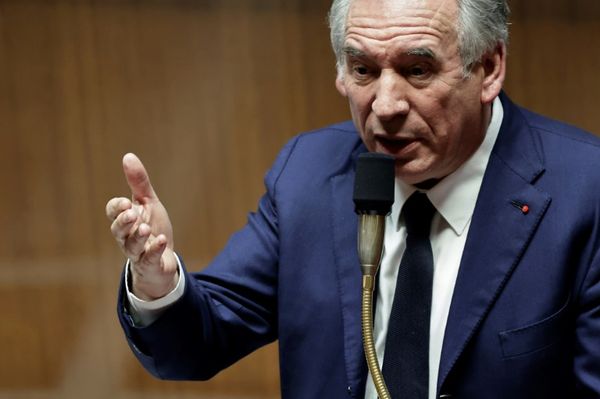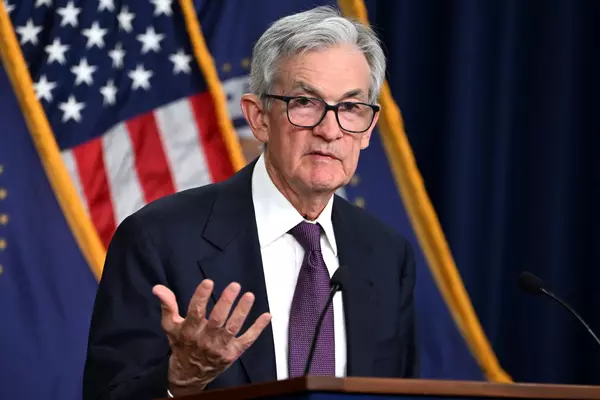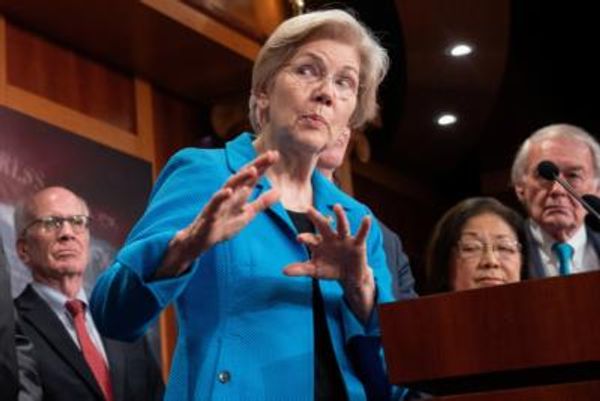
For those wishing simply to reset U.S. foreign policy to the era before Donald Trump took the presidency, President-elect Joe Biden seemed to offer a glimmer of hope last week. “America is back,” he tweeted, adding in another tweet that his new foreign-policy team “is ready to lead the world, not retreat from it.” The subtext: Trump was but a blip in the story of the United States’ global leadership. But Biden’s choice for one of the most important members of his team tells a different story. Incoming National Security Advisor Jake Sullivan has spent the past several years as part of a group working on a humbler, less ambitious approach to U.S. foreign policy—one that offers an honest, realistic assessment of how Americans’ own views on the their place in the world have changed over the past four years under Trump.
Beginning in 2017, Sullivan and a dozen others, mostly former officials in the administration of former U.S. President Barack Obama, but also some veterans of Republican administrations, did something unusual for the Washington elite: They listened to what Americans outside the Washington bubble had to say. In a project organized by the Carnegie Endowment for International Peace and led by Salman Ahmed, a former Obama administration National Security Council official, the group conducted hundreds of interviews with small business owners, farmers, educators, state and local government officials, and others in Ohio, Nebraska, and Colorado, asking them what they wanted from U.S. foreign policy. The final result, published in September, was a report entitled Making U.S. Foreign Policy Work Better for the Middle Class.
The report deserves far more attention than it received in the run-up to the November elections. It embraces Trump’s most important insight—that the purpose of U.S. foreign policy is to make life better for Americans—even as it rejects Trump’s divisive nationalism on international trade and U.S. alliances. Americans want their country engaged in the world, the report argues, but not at any cost. Most Americans face massive economic uncertainty, not just from the effects of the COVID-19 pandemic, but from decades of globalization and technological change that have lifted the well-educated and well-connected while leaving many struggling to stay afloat and provide opportunities for their children. If U.S. foreign policy fails to reflect that existential challenge, Americans will not support it.
The group presents its approach as something distinctly new and better-suited for a United States that has limited resources; faces debilitating regional, class, and racial divides at home; and has to act in a world with much wealthier competitors than during either the Cold War or the brief so-called unipolar moment after the collapse of the Soviet Union. If the report is modest and calls for a less ambitious foreign policy, that is precisely the point: “The United States cannot renew America’s middle class unless it corrects for the overextension that too often has defined U.S. foreign policy in the post-Cold War era,” the authors wrote.
That is a slap at the interventionist liberal internationalism still championed by parts of the Democratic elite, but also at some of Trump’s potential heirs in the Republican Party. Secretary of State Mike Pompeo and Sens. Marco Rubio, Tom Cotton, and Josh Hawley are all stoking the fire for a new global confrontation with China. The Carnegie report suggests they won’t find much support across the country, not even in Republican states such as Nebraska and Ohio. “There is no evidence America’s middle class will rally behind efforts aimed at restoring U.S. primacy in a unipolar world, escalating a new Cold War with China, or waging a cosmic struggle between the world’s democracies and authoritarian governments,” the report states. Most Americans, it continues, “are more concerned with proximate threats to their physical and economic security.”
The road map for what the authors call “a foreign policy that supports the aspirations of a middle class in crisis” is not an especially straightforward one. Those interviewed wanted the government “to better promote [their] interests … by fostering stability and lowering the risks of living in a more open and integrated world,” the authors wrote. The traditional liberal agenda of free trade and the rules-based global order may have provided stability, but it has not delivered sustained growth in employment earnings and viability for their local communities. The traditional arguments of economists about the aggregate gains of trade fall flat across much of the United States today. But Trump’s policy of economic nationalism has produced an equally dismal result. His global trade war not only upended international rules and thereby increased uncertainty and risk, but also hurt manufacturers with new tariffs on imports and harmed farmers when China and other countries retaliated with their own levies.
A new, post-Trump agenda would prioritize issues such as pandemic preparedness and prevention; cybersecurity; the protection of critical supply chains; support for research, development, and innovation; workforce development; and ways to bring better opportunities to struggling communities. High-speed broadband, which is vital for access to education, business, and opportunity, should be rolled out across the country with the same urgency as former President Dwight D. Eisenhower rolled out the national highway system at the height of the Cold War. Strengthening economic adjustment programs for communities hit by economic disruption would no longer be the responsibility of low-level officials; it would be a White House concern.
This new approach would require breaking down the silos that have long constrained the making of foreign policy. Until now, strategists and diplomats have focused on security and geopolitical competition while issues of domestic growth and economic equality were left to others. The future will require “better interagency coordination, interdisciplinary expertise, and some policy imagination,” the report said. Critical issues that meld domestic and foreign policy include curbing tax avoidance, reining in anti-competitive practices by large corporations, and boosting labor and environmental standards around the world in order to discourage companies from moving industry offshore. The task force calls for a national competitiveness strategy that would more closely link U.S. foreign and domestic priorities.
The report offers some glimpses into the internal struggles that will play out in new administration. Biden’s “Build Back Better” plan, for example, still champions the old and increasingly irrelevant notion of manufacturing jobs as the best path to middle-class prosperity; Biden is promising to create 5 million of them through “Buy American” procurement and building domestic supply chains. But the Carnegie report rightly notes that manufacturing now employs just 9 percent of the nation’s workforce, and new labor-saving technologies mean “this percentage will steadily decline over the longer term.” At the same time, middle-income jobs are growing rapidly in the digital economy. Finding ways to spread these opportunities across the country deserves much higher priority.
Climate change will be another likely area of conflict. The report recognizes the job-creating possibilities of transitioning to a low-carbon economy. But in language that will frustrate progressive Democrats, it points out that most of the coal, oil, and gas jobs threatened by the climate agenda are in rural counties, some of which are poorly located for green energy projects. In places such as Weld County, Colorado, or North Platte, Nebraska, traditional energy industries provide the bulk of well-paying jobs for workers without a college education.
The same holds for defense spending. While the report favors redeploying some military spending to research and development and workforce training, it warns that large cuts to the defense budget would be economically devastating for communities with few other short-term options. The largest employer at a single site in Ohio, for example, is the Wright-Patterson Air Force Base near Dayton. Most of these communities that are dependent on resource extraction and defense vote Republican, and Democratic initiatives that slashed employment in these places would only cement the partisan divide.
One smaller but critical recommendation made by the report is to open up the U.S. government’s advisory committees on international economic policy. The advisory panels for the U.S. Trade Representative and the Department of Commerce, for example, are dominated by corporate interests. There should be far more scope for input from state and local governments, labor and consumer groups, and ordinary citizens. The government needs to institutionalize what the report’s authors set out to do—listen to more of the country when making foreign policy.
The report offers encouragement that Americans do not want to walk away from the world—they want to embrace it in ways that make their lives better. That the incoming national security advisor’s name is on that report is a good sign that the Biden administration may be ready to take on that task.







